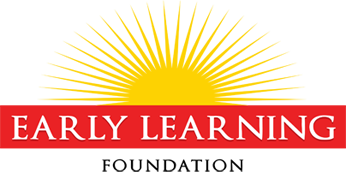Will It Be a Bright Beginning for Your Child?
Will It Be a Bright Beginning for Your Child?
It begins with understanding the problem, and is quickly followed by the question of commitment.
Recently I spent the morning in a Kindergarten classroom in a poor urban school district. The teacher was an experienced Kindergarten teacher, and had well-established routines in the classroom. When asked to come sit in a circle, the children willingly complied. When it was time for recess, they cleaned up their work areas and began to line up. But even in this well-managed classroom it was easy to pick out some children who are at-risk of not developing the skills and habits that are necessary for learning success.
William and Jacob were easily distracted, and often needed a reminder to stay in their assigned work area and persist at their work. Janice and Melody were very shy. They did not interact with other children. Tyrone worked alone, avoiding other children. Some of the students had good vocabulary and oral language skills, but many did not. A few of the children struggled to hold a pencil, or frequently bumped into things or other kids as they moved around the classroom. Before my visit was over, I could easily identify which children might not be the lucky ones to become successful learners for life.
The importance of early learning success cannot be overstated. Children coming to kindergarten with solid language, motor, and behavior skills have a huge advantage. The skills young children develop, the love of learning they experience, and the self-concept they form in the preschool through grade 3 years set the trajectory of learning for life.
Sadly, for many young children our schools are not working effectively to build the foundation of skills needed for a life of learning. By the beginning of fourth grade, the point at which we can accurately predict long-term learning outcomes, only 33% of American children are at proficient reading levels. Only 17% of children who are eligible for free or reduced lunch are at proficient reading levels. The vast majority of these children are unlikely to become good readers, love to learn, go on to advanced education, or become learners for life.
While schools typically acknowledge the importance of early learning success, the choices schools make often do not effectively help more children become proficient learners. Some schools allow class size to swell way beyond the 18-22 students per class supported by the research for optimal learning for young children. Support services may be unavailable. Music, physical education and art may be cut. In many American schools, in an effort to achieve better test scores, schools choose to cover more academic content, and require teachers to race through the delivery of instruction in ways that cause many children to struggle, disengage, and begin to fall out of love with learning. The typical American school asks teachers to cover far more content in a year than the most successful school systems around the world.
Parents beware! Children who come to kindergarten with poorly developed skills are at-risk of becoming frustrated learners while at school. Children with gaps in the development of essential skills at the end of third grade are at-risk of becoming disengaged learners for life.
To ensure a bright beginning for your child, you may want to start asking principals and teachers these questions:
Have you identified the essential early learning skills and behaviors my child needs to learn well?
Will you take all the time needed to help my child develop these essential skills?
Will you offer important instruction to my child at the correct level of difficulty, the level at which there is a little bit of challenge but not enough to cause him to get frustrated and disengage?
Will the children in this classroom feel physically and emotionally safe?
Will my child discover the joy of learning?
Have you built a school and classroom culture in which every day my child will experience positive relationships, respect, empathy, and love?
To become a successful lifelong learner, our children need to fall in love with learning. This happens in the early years. Are the schools in your community helping every child find a bright beginning?
Bob Sornson, PhD, was a classroom teacher and school administrator for over thirty years and is the founder of the Early Learning Foundation. He is dedicated to helping schools and parents give every child an opportunity to achieve early learning success. His Pre-K to Grade 3 Early Learning Success Initiative has demonstrated that we can help many more children become successful learners for life.
Bob is the author of numerous articles, books, and audio recordings. Fanatically Formative, Successful Learning During the Crucial K-3 Years (Corwin, 2012), Creating Classrooms Where Teachers Love to Teach (Love and Logic Press, 2005), and The Juice Box Bully (Ferne Press, 2010) are among his best-sellers. Bob is also the author of the Stand Up/ Speak Up Program (www.no-bystanders.com), teaching children to make the choices to stand up and speak up for themselves and others. To contact Bob or learn more about his publications and workshops, please visit www.earlylearningfoundation.com.
